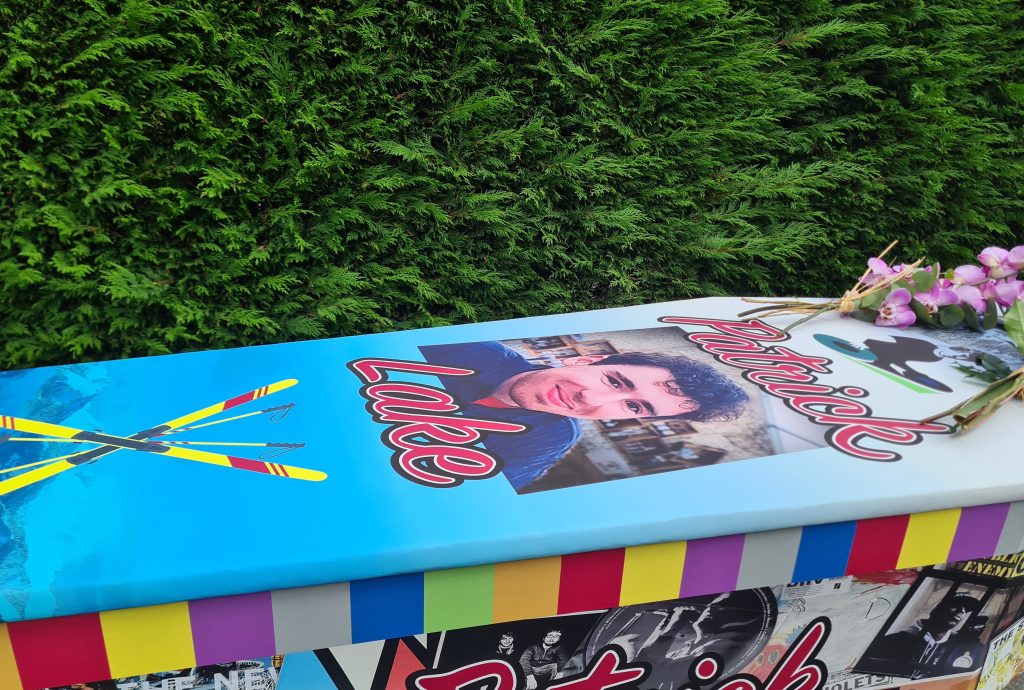
What is a personalised funeral?
Whatever kind of funeral you are having, religious or non-faith, there are plenty of ways to reflect the person who has died. You can include a few small touches or you can make every choice completely bespoke to their life, loves and beliefs.
We know from our own experience as funeral directors that being able to personalise a funeral creates an opportunity for people to find more meaning and feel more connected to each other and to the person who has died. This continued bond is important to many people after bereavement. However, there is no pressure to make a funeral personal – this might not be the right time for you, or indeed some people may prefer for the funeral to be “deliberately impersonal”. The important thing to know is that you do have options and, when it comes down to it, there are very few ‘rules’ that absolutely have to be followed.

Where do you start?
Before making any decisions, we would encourage you to spend some time thinking about the person who has died. As you reflect, consider what made them who they were. What did they enjoy? What was most important to them? Where there any places that they particularly loved? Any objects they treasured? Any teams, clubs, music, colours, or films that they liked? Where there any books, magazines or shops that remind you of them? Or did they have a favourite saying, meal or tipple?
You might choose one theme or aspect to direct your choices. For example, you may wish to focus on years of military service, their job as a firefighter, their love of the colour orange or that everything they did was focused on protecting the planet. Alternatively, you may want many aspects of their personality to be acknowledged during the funeral. There is no right and wrong way to approach this – only what feels right for you.

Some ideas for you to consider
The tone of the funeral – if someone was quiet or reserved, flamboyant or cheeky then this could be reflected in the funeral. You have control over the flow and tone of the funeral.
Put a personal item on top of the coffin – this might be with or without a flower arrangement. For example, you may choose some binoculars, dancing shoes, a racing post or a gardening trowel and terracotta pot.
Choose a colourful coffin or ashes casket – there are a huge range of coffins available, decorated with different flowers, team colours, animals, colours, and themes such as sports and countries. Alternatively, you can create a fully bespoke coffin with photographs and other artistic media.
Decorate the coffin yourself – if you choose a white or manila cardboard coffin then you might choose to decorate this yourself. You can paint the coffin, create a collage with photographs, notes, and other graphics. This might be something that you would like to do with other friends and family – so you are creating something personal together.
Photographs and videos – choosing one or more photographs to show during a service is a wonderful way to include many people, places, and life stages. It also helps those present to connect with the event and the person who has died.
A “funeral favour” – you might choose to give something to people who attend the service, in memory of the person who has died. This can be particularly poignant if there is something which immediately springs to mind – maybe they loved Tunnocks Teacakes, Dairy Milk or Werther’s Original.
Refreshments – choosing a favourite food or drink to enjoy during refreshments can be a lovely way to acknowledge the tastes of the person who has died. An afternoon tea, lemon drizzle cake, sherry or Martini may feel very fitting.

If you would like to find out more about funeral choices or if you are thinking about leaving wishes for your own funeral, you can contact us on 01943 262626 or at sarah@fullcirclefunerals.co.uk
To receive our latest news and articles direct to your inbox every few months sign up to our newsletter
You may also be interested in our book Funerals Your Way which has plenty of information about arranging the kind of funeral you want and how to reflect the life of the person who has died.



